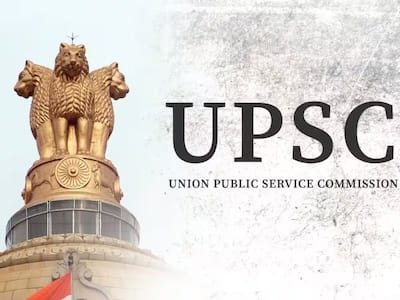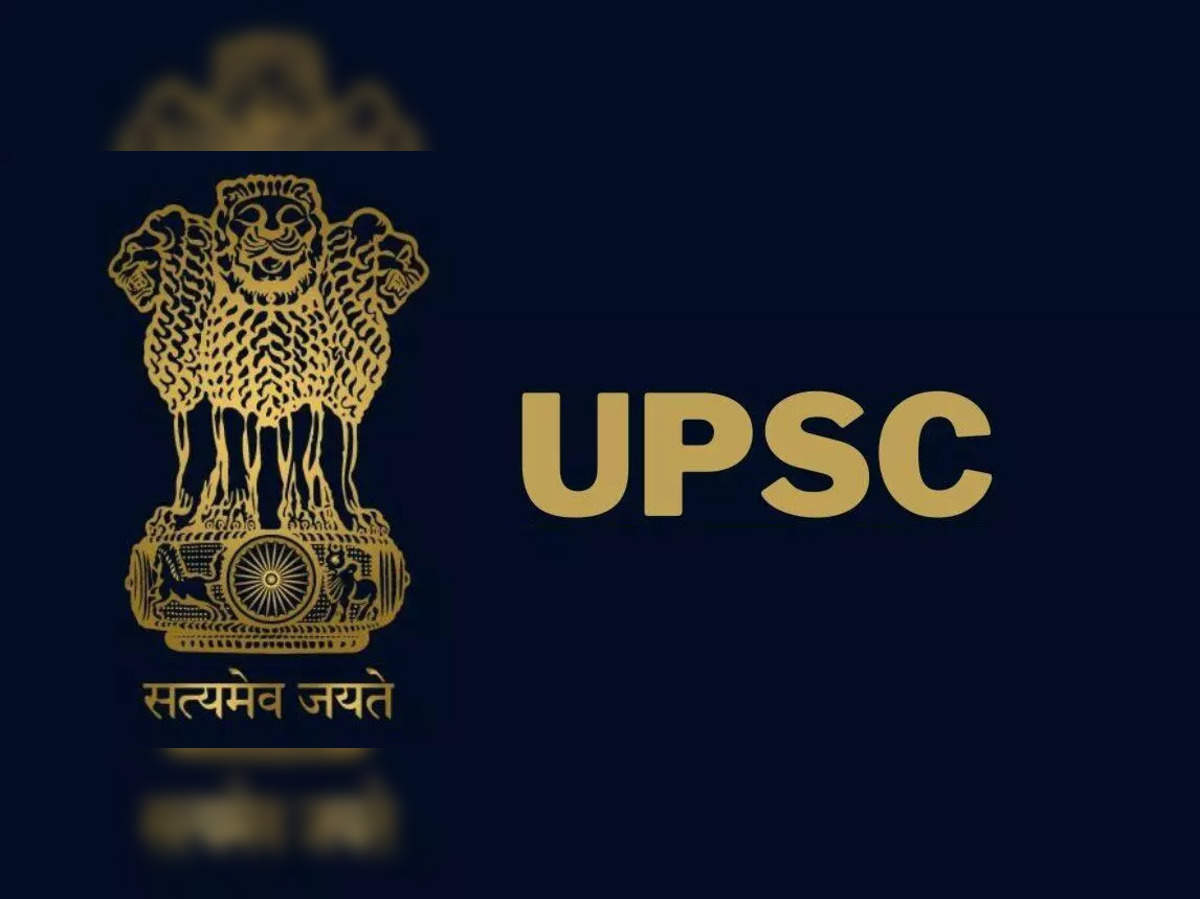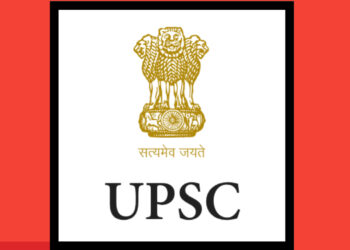Introduction
Top 10 Tips To Crack UPSC Exam 2025 Students The Union Public Service Commission (UPSC) exam is one of the most prestigious and challenging competitive exams in India. With thousands of aspirants competing every year, the competition is fierce, and success requires more than just hard work. It demands a well-planned strategy, disciplined preparation, and an unwavering commitment to excellence.
If you’re aiming to crack the UPSC exam in 2025, it is crucial to understand the ins and outs of the exam process, design an effective study plan, and stay focused on your goal. In this article, we will outline the top 10 tips that can help you successfully navigate the UPSC exam preparation journey and achieve your dream of becoming a civil servant.
1.Understand The Syllabus Deeply
The UPSC Prelims, the first essential step is to thoroughly understand the syllabus. This involves familiarizing yourself with each topic and sub-topic outlined in the syllabus, ensuring you know exactly what to study. A clear understanding of the syllabus will enable you to create a focused and efficient study plan.
Key Points to Keep in Mind:
- Familiarize Yourself: Carefully go through the UPSC Prelims syllabus for 2025 to understand all the subjects and topics.
- Break It Down: Split the syllabus into smaller, manageable parts to avoid feeling overwhelmed.
- Prioritize Key Topics: Focus on the topics that are frequently covered in past exams to maximize your preparation.
Benefits of Understanding the Syllabus:
- Time Efficiency: Knowing the syllabus helps you avoid wasting time on unnecessary topics.
- Organized Study Plan: It allows you to craft a focused and well-structured study timetable.
- Increased Confidence: A solid understanding of the syllabus can help reduce exam anxiety and boost your confidence.
2. Choose Quality Study Materials
When preparing for the UPSC Prelims, selecting the right study materials is vital for effective preparation. The quality of resources you choose plays a significant role in enhancing your understanding and retention of information. Here are some tips to help you choose the best study materials:
Start with NCERTs: Begin by reading NCERT textbooks from classes 6 to 12, as they provide a strong foundation in core subjects like history, geography, and political science.
Choose Comprehensive Guides: Opt for materials that cover the entire syllabus in detail. This approach ensures that you don’t miss any important topics and helps save time by eliminating the need for multiple resources.
Ensure Updated Content: Make sure that the materials you select are current and aligned with the latest syllabus and exam pattern. Staying up-to-date with the changes in the exam format is essential for success.
Types of Study Materials:
| Type of Material | Examples | Purpose |
| NCERT Textbooks | History, Geography, Political Science | Build foundational knowledge |
| Reference Books | Laxmikant for Polity, Spectrum for History | Gain in-depth understanding |
| Current Affairs | Newspapers, Monthly Magazines | Stay updated on current events |
Choosing the right study materials isn’t just about gathering a large number of resources—it’s about selecting quality materials that deepen your understanding and improve your retention of key concepts. Focus on resources that provide clear explanations, concise information, and align with the exam’s demands.

3. Create Your Own Timetable
Creating a study timetable is a key factor for successful UPSC preparation. A well-structured timetable helps you manage your time efficiently, ensuring that you cover all the necessary topics and stay on track throughout your preparation. Here’s how you can create your own effective timetable:
- Understand Your Syllabus: Start by thoroughly familiarizing yourself with the complete UPSC syllabus. Knowing what you need to study will help you allocate time for each subject more effectively.
- Divide Your Time into Phases: Break down your study time into distinct phases, with each phase focusing on different aspects of preparation. For example:
- Foundation Phase (Months 1-3): This phase is for building a solid foundation. Focus on understanding the basics and go through NCERT textbooks. It’s also important to stay updated on current affairs during this time.
- Intensive Preparation (Months 4-9): In this phase, dive deeper into core subjects and your optional subject. This is the time for in-depth study and mastering the important concepts.
- Revision and Mock Tests (Months 10-12): During the last phase, concentrate on revising everything you’ve studied. Taking regular mock tests will help you assess your readiness and identify areas that need improvement.
- Include Breaks: Don’t forget to schedule regular breaks. Short breaks between study sessions will help you maintain focus and energy levels throughout your study hours.
Study Timetable Breakdown:
| Phase | Duration | Focus Areas |
| Foundation Phase | Months 1-3 | Basics, NCERTs, Current Affairs |
| Intensive Preparation | Months 4-9 | Core Subjects, Optional Subjects |
| Revision | Months 10-12 | Mock Tests, Revision of All Subjects |
Key Tip: While it’s important to stick to a timetable, remember that it should also be flexible. You may need to adjust your schedule based on your learning pace, specific needs, or changes in circumstances.
By following these steps and adjusting the timetable according to your study habits, you can create a personalized plan that ensures you cover the syllabus thoroughly, allowing plenty of time for revision and practice. This approach will keep you on track and focused throughout your UPSC preparation.
4. Analyze Previous Year Questions
Understanding previous year’s exam questions is a vital part of UPSC Prelims preparation. By analyzing past papers, you gain insight into the exam pattern and can focus on the most relevant topics. Here’s how to make the most of this strategy:
1 Identify Patterns:
- Look for Recurring Topics and Themes: Pay attention to topics that frequently appear across different years. This will give you a clear idea of which subjects hold more weight in the exam.
- Understand Question Types: Note the common question formats, such as multiple choice questions (MCQs), statements with assertions and reasons, and fact-based questions. Understanding these patterns will help you prepare for the specific types of questions you may encounter.
- Assess Subject Weightage: Get an idea of how much importance is given to each subject and topic. This will allow you to prioritize your studies effectively.
- Practice Regularly:
- Solve Past Papers: Make it a habit to solve a few questions every day from previous years’ papers. This will help reinforce your learning and improve your recall under time pressure.
- Simulate Exam Conditions: Practice solving questions within the given time limits to build exam stamina and improve your time management skills.
- Review Your Answers: After each practice session, carefully review your answers. Identify areas where you made mistakes or took longer than needed, and focus on improving these aspects.
- Build Confidence:
- Familiarity with the Exam Format: Regularly practicing past papers will make you more familiar with the exam format, reducing anxiety on exam day.
- Increase Speed and Accuracy: Through constant practice, you’ll naturally improve your speed and accuracy, essential for performing well in the Prelims.
- Better Exam Readiness: The more questions you solve, the more confident you’ll feel about tackling the real exam. This familiarity boosts your overall exam readiness.
By following these strategies, you’ll gain a deeper understanding of the UPSC Prelims exam format and improve your ability to answer questions accurately and quickly. Analyzing previous year’s questions not only strengthens your preparation but also enhances your confidence, increasing your chances of success in the UPSC Prelims 2025!
5. Attempt Daily Mock Tests
Mock tests are essential for UPSC Prelims preparation as they help with time management, identifying weak areas, and getting familiar with the exam format. Here’s how to make the most of them:
Benefits of Mock Tests:
- Time Management: Helps you practice managing time during the exam.
- Identify Weaknesses: Pinpoints areas you need to focus on more.
- Familiarity with the Exam: Gets you used to the question types and exam format.
How to Incorporate Mock Tests:
- Daily Practice: Take a mock test regularly to track progress.
- Review Your Answers: After each test, go through your mistakes to improve.
- Track Progress: Keep a record of your scores to monitor improvement.
Suggested Resources:
- Daily Quiz: Participate in daily quizzes for UPSC Prelims.
- Test Series: Enroll in a mock test series to simulate the exam.
- Previous Year Papers: Analyze past papers to understand patterns.
Make mock tests a regular part of your routine to build confidence and improve exam performance.
Read more
6. Practice Daily Current Affairs
Staying updated with current affairs is crucial for UPSC preparation. Here are some strategies to incorporate them into your study routine:
- Read Newspapers Regularly: Make it a habit to read The Hindu or Indian Express for important news and its implications.
- Use Online Resources: Platforms like BYJU’s and Sleepy Classes offer daily summaries and quizzes.
- Make Notes: Create concise notes on current events for quick revisions.
Resources:
- Newspapers: The Hindu, Indian Express
- Online Platforms: BYJU’S, Sleepy Classes
- YouTube Channels: Rajya Sabha TV, Study IQ
Regular engagement with current affairs will boost your general knowledge and help you connect recent events with the syllabus, enhancing your UPSC preparation.
7. Make Your Own Effective Notes
Creating your own notes is an essential part of UPSC preparation. Writing notes not only helps you organize your thoughts but also enhances your understanding of the material. Here are some strategies for making effective notes:
- Organize Your Notes Well
- Use clear headings and subheadings to categorize different topics.
- Bullet points can make the information more digestible.
- Highlight key points or underline important facts for easy retrieval later.
- Consider color-coding different topics or themes for better visual distinction.
- Summarize the Content
- After reading a section, summarize it in your own words.
- Focus on the core concepts and key takeaways instead of writing long passages verbatim.
- This not only helps in better understanding but also makes revision quicker and more efficient.
- Incorporate Visual Aids
- Use diagrams, flowcharts, or tables to represent complex concepts.
- Visual aids enhance memory retention and make it easier to understand intricate details.
- Review and Revise Regularly
- Schedule weekly reviews to revisit and revise your notes.
- This will reinforce your understanding and help identify areas that need more attention.
Well-organized notes are a valuable asset during UPSC preparation. They allow you to locate important information quickly and help streamline your revision process.
By following these strategies, you can create effective, personalized notes that will support your learning and improve your performance in the UPSC exam.

8. Enroll In A Coaching Institute
Enrolling in a coaching institute can significantly enhance your UPSC Prelims preparation. A reliable coaching center offers structured guidance and expert faculty, helping you efficiently navigate the vast syllabus. Below are some of the key benefits of joining a coaching institute:
Benefits of Coaching Institutes:
- Expert Guidance
Experienced educators provide valuable insights into the exam pattern, help clarify doubts, and offer practical tips for tackling difficult topics. Their expertise can save you time and effort in understanding complex subjects. - Comprehensive Study Material
Coaching institutes often provide well-researched, comprehensive study materials designed to cover the entire syllabus. These materials are typically curated to help you grasp the core concepts and prepare for the exam with ease. - Regular Mock Tests
Institutes conduct regular mock tests that help assess your preparation level. These tests not only familiarize you with the exam format but also improve your time management and exam strategy, ensuring you’re well-prepared for the actual exam day.Top 10 Tips To Crack UPSC Exam 2025 Students
Why Choose a Coaching Institute?
- Structured Learning
A coaching institute offers a systematic approach to studying, breaking down the syllabus into manageable portions. This structured learning helps ensure that all topics are covered methodically, preventing you from missing out on essential subjects. - Peer Interaction
Studying alongside other aspirants can motivate you, foster healthy competition, and allow you to exchange different perspectives and learning methods. Peer interaction is a valuable part of the learning process, keeping you engaged and inspired. - Access to Resources
Many institutes offer additional resources such as video lectures, online test series, and downloadable materials. These resources make it easier for you to study on your own time and at your own pace, whether at home or on the go.Top 10 Tips To Crack UPSC Exam 2025 Students
9. Revise The Whole Syllabus
Revising is an essential component of your UPSC study plan as it helps reinforce what you’ve learned and ensures better retention. Once you’ve completed a subject, take time to revisit it to solidify your understanding. Here are some effective revision strategies:
Effective Revision Strategies:
- Set a Weekly Revision Schedule
Designate specific days each week to go over the material you’ve studied. A weekly revision ensures you’re consistently reviewing and not forgetting previously learned content. - Use Flashcards
Create flashcards for important concepts, definitions, or facts. These are quick and convenient tools for revision, allowing you to test yourself and reinforce your memory. - Summarize Topics
After completing a topic, write concise summaries to capture the main ideas and key points. This helps you condense information and ensures that you have a quick reference for future revisions.Top 10 Tips To Crack UPSC Exam 2025 Students
Revision Methods:
| Method | Description |
| Weekly Schedule | Set aside specific days to revise the topics learned during the week. |
| Flashcards | Use flashcards to quickly review key concepts and terms. |
| Summaries | Write brief summaries to reinforce your understanding of each topic. |
Regular revision not only enhances your retention but also helps you gain confidence as you approach the exam. Remember, consistent practice is key to mastering the material and ensuring success in the UPSC exam.Top 10 Tips To Crack UPSC Exam 2025 Students
Read more
10. Stay Confident And Avoid Negativity
Top 10 Tips To Crack UPSC Exam 2025 Students Maintaining a positive mindset is crucial for success in the UPSC Prelims. Believing in your abilities and staying focused on your goals can make all the difference. Here are some practical tips to help you stay positive and motivated throughout your preparation:
1. Celebrate Your Achievements
Take time to acknowledge even small milestones in your preparation.
- Keep track of your progress and celebrate each achievement, no matter how minor it may seem.
- Share your successes with family and friends who support and motivate you.
- Reflect on how far you’ve come, as this can boost your confidence.Top 10 Tips To Crack UPSC Exam 2025 Students
2. Surround Yourself with Supportive People
The people you spend time with can have a big impact on your mindset.
- Spend time with friends, family, or study groups that encourage and uplift you.
- Seek out peers who share your goals, as mutual support helps everyone stay motivated.
- Avoid negative influences that could diminish your confidence or cause stress.Top 10 Tips To Crack UPSC Exam 2025 Students
3. Practice Positive Self-Talk
Your inner dialogue plays a huge role in shaping your mindset.
- Replace negative thoughts with positive affirmations to stay motivated.
- Focus on your strengths and remind yourself of your abilities.
- Celebrate what you’ve already achieved rather than dwelling on your weaknesses.Top 10 Tips To Crack UPSC Exam 2025 Students
Building Confidence and Positivity
Staying confident isn’t just about believing in your capabilities, but also about creating an environment that encourages growth.
Surround yourself with positivity and adopt a mindset that embraces challenges as opportunities to learn.
By following these tips, you can maintain a positive attitude that will help you approach the UPSC Prelims with confidence and determination.
Remember, a positive mindset is essential for overcoming obstacles and staying focused on your goals. Stay positive, keep moving forward, and you will achieve success!
For more resources and strategies to help you prepare for the UPSC exam, visit our website.Top 10 Tips To Crack UPSC Exam 2025 Students
Conclusion
While self-study is essential, joining a coaching institute can provide the right mix of support, resources, and expert guidance to accelerate your UPSC Prelims preparation. Institutes like Sleepy Classes, for example, offer engaging video lectures, test series, and study materials, available anytime and anywhere, ensuring that you are well-equipped for the exam.Top 10 Tips To Crack UPSC Exam 2025 Students
By choosing the right coaching institute, you can supplement your self-study efforts and increase your chances of success in the UPSC Prelims.Top 10 Tips To Crack UPSC Exam 2025 Students
Read more
(FAQ)
1 What are the best tips to clear UPSC Prelims on the first try?
To clear UPSC Prelims on your first attempt, focus on understanding the syllabus thoroughly, selecting quality study materials, creating a structured timetable, practicing regularly with mock tests, and staying updated with current affairs.
2 How can I prepare for UPSC Prelims if I am just starting?
If you’re new to UPSC preparation, begin by familiarizing yourself with the syllabus and exam pattern. Collect reliable study materials, and create a study plan that aligns with your pace. Start with basics like NCERTs and gradually build upon them.
3 What study materials should I use for UPSC Prelims?
Use study materials that comprehensively cover the entire syllabus, such as NCERT textbooks, current affairs magazines, and trusted guides. Additionally, supplement your preparation with previous year question papers for practice.
4 How important are mock tests for UPSC Prelims?
Mock tests are essential for UPSC Prelims preparation. They help you practice time management, identify weak areas, and get familiar with the exam’s structure and question patterns. Regular mock test practice boosts your confidence and helps you improve speed and accuracy.
5 How often should I revise for UPSC Prelims?
Revision is a key part of preparation. Aim to revise your notes and concepts regularly, ideally once a week. In the final months leading to the exam, schedule more frequent and thorough revisions, focusing on key areas.Top 10 Tips To Crack UPSC Exam 2025 Students
6 Should I join a coaching institute for UPSC Prelims preparation?
Joining a coaching institute can provide structured guidance, expert faculty, and a competitive environment that keeps you motivated. However, it’s not mandatory if you are disciplined in self-study. Consider coaching if you feel you need additional support.
7 What role do current affairs play in UPSC Prelims?
Current affairs are integral to the UPSC Prelims, with many questions linked to recent events. To stay informed, read newspapers like The Hindu or Indian Express, and use current affairs magazines and apps to stay updated with important developments.Top 10 Tips To Crack UPSC Exam 2025 Students
8 How can I maintain a positive mindset during my preparation?
To maintain a positive mindset, set achievable goals, celebrate small successes, and keep track of your progress. Surround yourself with supportive family, friends, or peers, and focus on your strengths. Practice positive self-talk and stay focused on your long-term goals.
Read more

















